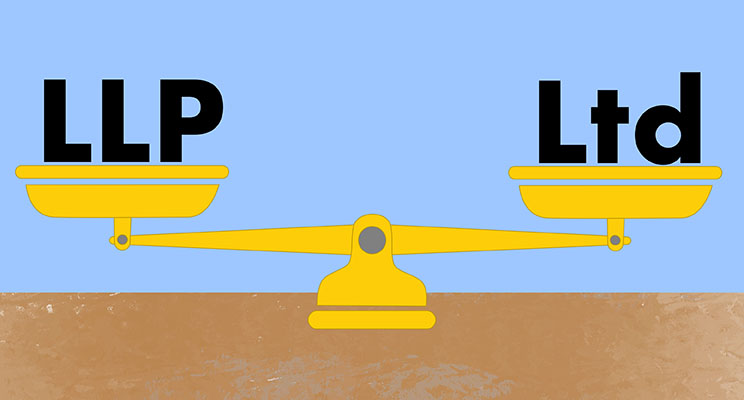-
By miguel-ingles
- In Uncategorized
Experts consider the UK as one of the largest and most dynamic economies in the world. This is thanks to certain fiscal rules and due to offering a simpler business creation process than neighbouring countries. Consequently, they are attracting entrepreneurs from all around the globe. Nonetheless, some of them are uncertain about the business structure they should choose to form a corporation in this country. In this article, I will analyse which system is more convenient: setting up an LTD or an LLP company in the UK.

What is an LTD? And an LLP?
A Limited Company (LTD) is a corporation in which a shareholder acquires a certain amount of shares, and, in return, they perceives profits in form of dividends. These shareholders designate the members of the Board of Directors of the company. This business structure limits liability. Because of all the previous reasons, it is the most common business structure in the UK.
On the other hand, an LLP or Limited Liability Partnership is similar to a Partnership (multiple partners control the company’s assets and operations under their own name). However, this business structure also limits member’s liability, as in LTDs.
You will find more information about both business structures in this article.
Differences and Similarities between Setting up an LTD or an LLP company in the UK
Founding Members
In the UK, a single person can for a Limited Company. They will be director and shareholder at the same time. On another note, to set up a Limited Liability Partnership local authorities require to have at least two founding partners. Nonetheless, it is not necessary to appoint directors nor shareholders.
Liability
Both business structures limit liability. However, in an LTD company it reduces itself to the sum of the value of the owned shares, while in LLPs each partner grants a certain amount that the corporation will use to cover possible debts.
Documentation
It is similar in both cases. It consists of submitting the annual accounts in the Companies House, a confirmation statement which reflects business’ updated data, and information about directors and shareholders of a Limited Company, or about partners of a Limited Liability Partnership. Anyhow, the Public Register must count with this pieces of information.
The biggest difference regarding documentation can be found in the company’s rules, which will be explained in the next section.
Rules and Statutes
- To establish an LTD, the founding members must write the Memorandum of Association and the Articles of Association. Those must be registered in the Companies House. These must state the name, the object and the management and the dissolution processes of the company, among other data.
- About LLPs, the partners must redact a Company Agreement, which should stipulate the management process and how profits and debts will be divided. However, unlike the previous documents, there is no need to register it in the Companies House, so it can remain confidential.
Taxes
- In case the annual revenue is superior to 90 000 GBP, both business structures will have to sign up for VAT.
- Unlike LTDs, LLPs do not have to pay Corporation Tax. In fact, the company does not have to pay taxes by itself. Each of its members must pay the corresponding Income Tax, in addition to the National Insurance fee.
Funding and investments
- Both LTDs and LLPs can ask for loans.
- Shareholders and partners may contribute additional funds, although, unlike Limited Liability Partnerships, Limited Companies will reward these shareholders with new shares.
- LTDs can look for funding from investors outside the business in exchange for shares. Different is the case of an LLP, which cannot give shares to people outside the company in return for investments.
Should You Set Up an LTD or an LLP company in the UK
As previously mentioned, if you desire to form a business on your own, you cannot establish an LLP. Moreover, if you aim to attract investors from outside the corporation, then constituting a Limited Company is the most appropriate option.
However, if you are looking to work with professionals from a similar sector as yours at the same time you want to limit your liability, the most suitable structure for your needs is the Limited Liability Partnership.
In conclusion, depending on each case, factors that have been mentioned all along the article and other elements such as the kind of business activity you will perform, you will find more convenient to set up an LTD or an LLP.